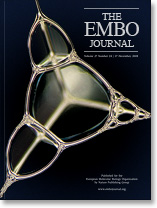
Hyung-In Moon, the South Korean plant compound researcher who made up email addresses so he could do his own peer review, is now up to 35 retractions.
The four new retractions are of the papers in the Journal of Enzyme Inhibition and Medicinal Chemistry that initially led to suspicions when all the reviews came back within 24 hours. Here’s the notice, which includes the same language as Moon’s 24 other retractions of studies published in Informa Healthcare journals: Continue reading Retraction count grows to 35 for scientist who faked emails to do his own peer review







